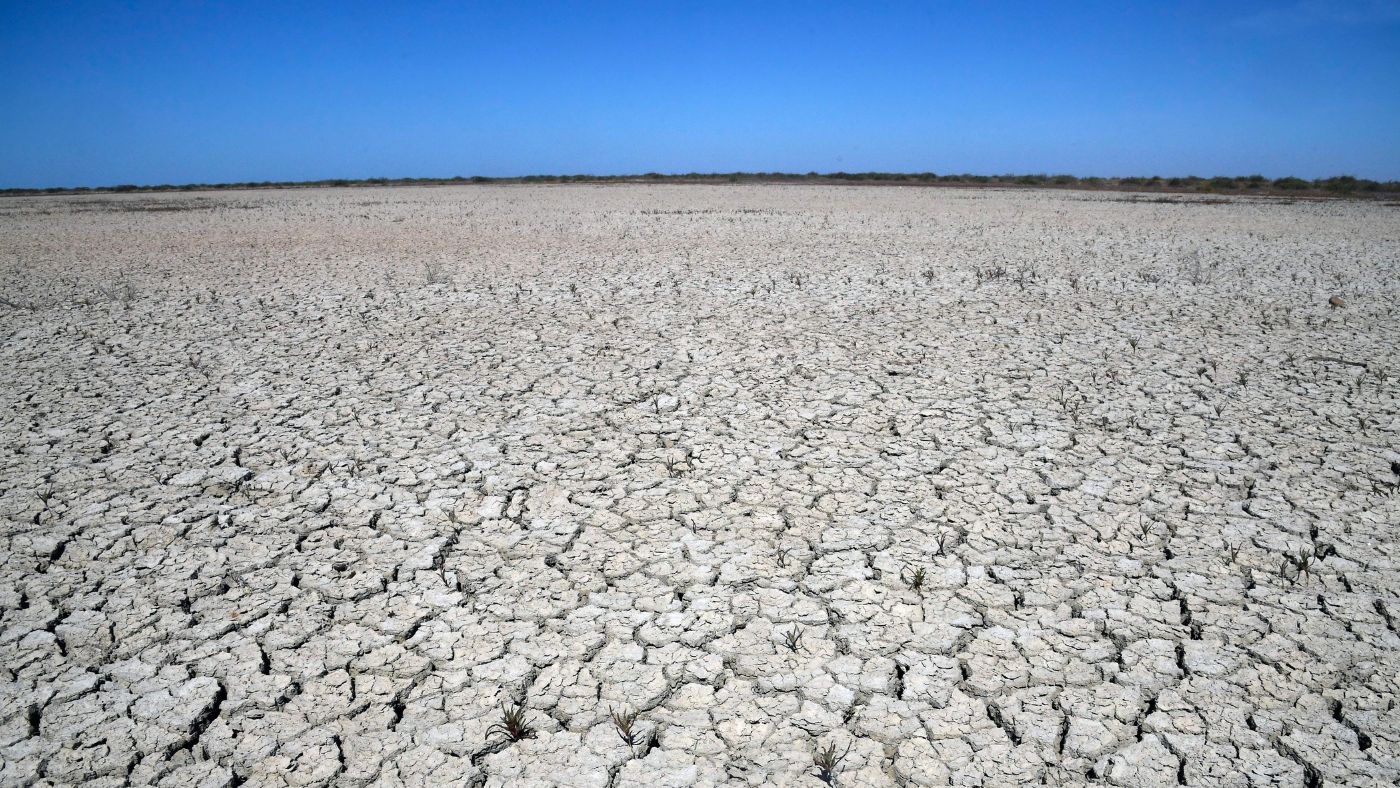The politics of drought: new crisis facing the EU
Spain’s PM says severe water shortages will become ‘one of the central political and territorial debates’ of our time

A free daily email with the biggest news stories of the day – and the best features from TheWeek.com
You are now subscribed
Your newsletter sign-up was successful
Europe felt the harsh impact of the climate crisis last year, with drought devastating crops and heatwaves killing more than 20,000 people.
An EU report, published by the Copernicus Climate Change Service, said widespread heatwaves plus low rainfall had caused water shortages that affected more than a third of the continent.
Spain’s prime minister, Pedro Sánchez, said in April that rather than being an isolated incident, severe drought would become “one of the central political and territorial debates of our country in the coming years”.
The Week
Escape your echo chamber. Get the facts behind the news, plus analysis from multiple perspectives.

Sign up for The Week's Free Newsletters
From our morning news briefing to a weekly Good News Newsletter, get the best of The Week delivered directly to your inbox.
From our morning news briefing to a weekly Good News Newsletter, get the best of The Week delivered directly to your inbox.
His comments offer a “stark warning”, said The Guardian, that “surely applies to southern Europe as a whole, as the prospect of another summer crisis looms, following a disastrously dry winter”.
‘Europe is running dry’
“It’s barely spring, and Europe is running dry,” said Politico in April.
In Italy, the absence of snow in the Alps has left the Po River running dry, while France has seen a record number of rain-free days, leading to water restrictions. Some 90% of Portugal is facing severe drought and unseasonable heat in Spain has dried up reservoirs and reduced olive oil production. As The Guardian said, “drought across vast swathes of territory is simply becoming the norm”.
“A few years ago I would have said we have enough water in Europe,” said Torsten Mayer-Gürr, the lead author of a recent satellite study that confirmed that Europe has been suffering from severe drought since 2018. “Now it looks like we could face problems.”
A free daily email with the biggest news stories of the day – and the best features from TheWeek.com
The ongoing lack of rainfall is “starting to have a serious impact on the farming industry in some areas”, said Euronews.
Portugal and Spain are so far “paying the highest toll for the lack of rain”, the site said, “but Baltic and Scandinavian countries are also experiencing drier than usual soil”.
Some of the most affected countries have begun requesting funds from the EU’s so-called agricultural reserve, a pot of €450 million, which was set up to support farmers in exceptional times.
‘Political instability’
“Water is both a direct victim of global warming as well as a major factor in its effects,” said Olivia Lazard, a fellow at Carnegie Europe. And the impacts of water shortages “quickly translate into social and political instability”, she said.
Lazard points to France, where water shortages have not only caused issues with trade but have also led to “increased political polarisation and civic violence”.
Yet despite the gravity of the situation in France, it is “only a teaser for what is to come in future years”, Lazard added.
During the UN’s 2023 water conference in March, Secretary-General António Guterres called for massive changes in how the world approaches not just agriculture, but also infrastructure, sanitation and the way water is monitored globally.
According to the World Resource Institute, however, of the 719 water commitments that were made at the conference, barely a quarter are likely to be “potential game-changers”. The rest, the institute said, “may not be strong enough to create substantial change in the world”.
For The Guardian, in an era that is “defined by geopolitical, economic and climate-related upheaval”, the politics that surround water shortages “represent another formidable challenge”.
To adequately meet that challenge, the newspaper concluded, “a sophisticated and empathetic politics, balancing concerns for food security, rural livelihoods and environmental imperatives, is required”.
Arion McNicoll is a freelance writer at The Week Digital and was previously the UK website’s editor. He has also held senior editorial roles at CNN, The Times and The Sunday Times. Along with his writing work, he co-hosts “Today in History with The Retrospectors”, Rethink Audio’s flagship daily podcast, and is a regular panellist (and occasional stand-in host) on “The Week Unwrapped”. He is also a judge for The Publisher Podcast Awards.